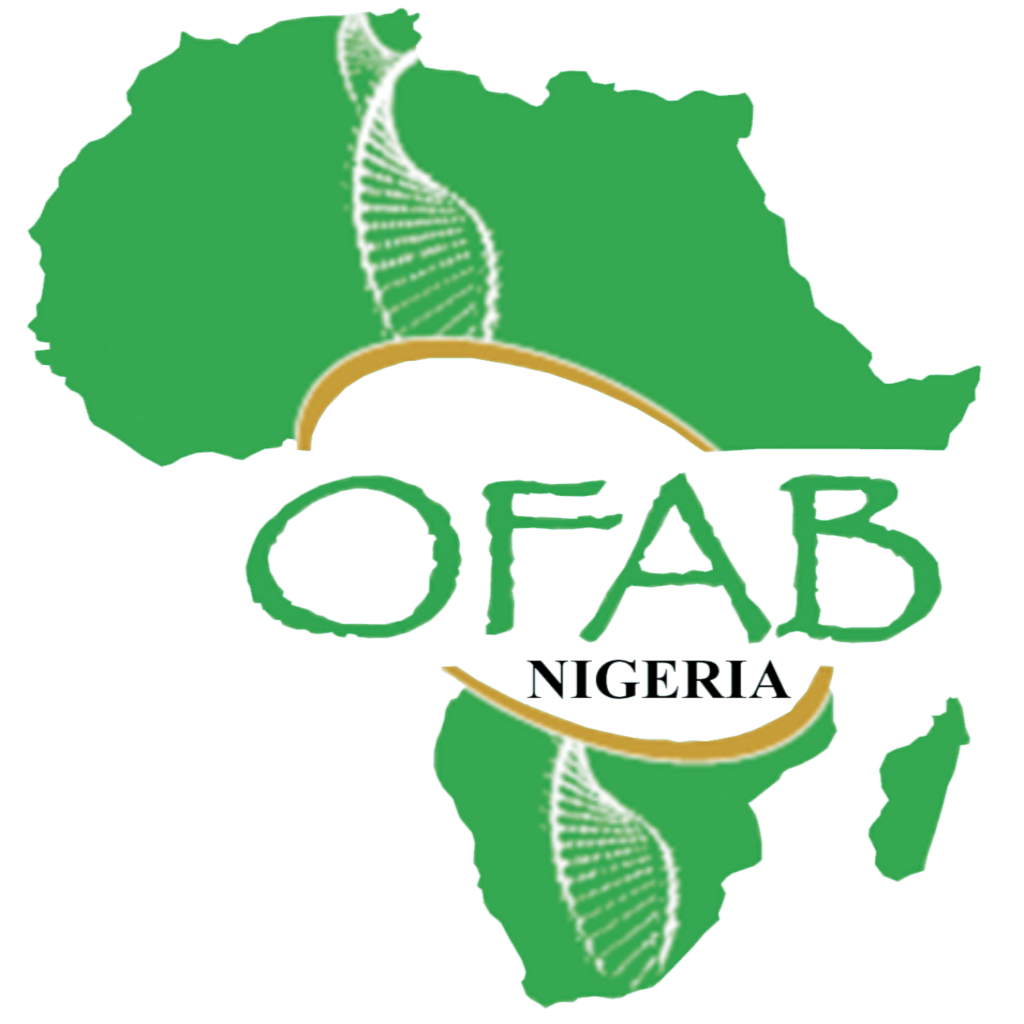Traditional rulers, Council chairmen, Religious clerics, Extension agents, Local farmers, others have been sensitized on the benefits, safety and science of genetically modified crops during a one day community outreached organized by the Open Forum on Agricultural Biotechnology (OFAB) in Africa, Nigeria chapter, an initiative of African Agricultural Technology Foundation (AATF) under the auspices of the National Biotechnology Development Agency (NABDA) in collaboration with the International Food Policy Research institute (IFPRI), Program for Biosafety Systems (PBS) and the Institute for Agricultural Research (IAR).
The Community outreach which was tagged “Community Empowerment through Agricultural Biotechnology, the Role of Council Chairmen, Clerics, Monarchs, Extension Agents and Farmers” in Abuja unveiled the importance of Agricultural Biotechnology in Poverty Alleviation and Zero Hunger facilitation.Speaking on the objectives of the event, Dr Rose Gidado, the country coordinator, Open Forum on Agricultural Biotechnology (OFAB) in Africa, Nigeria chapter, said the forum expect that at the end of this sensitization exercise, all the Chiefs and Clerics in the 6 LG Councils would have been sufficiently sensitized and educated about agricultural biotechnology practice. “They would have been armed sufficiently to convince farmers within their domain to adopt and use Agricultural Biotechnology products” she explained.
The Director – General/CEO of the National Biotechnology Development Agency (NABDA), Prof. Abdullahi Mustapha said religious leaders, farmers, and extension agents have key roles to play in creating awareness and promoting useful and beneficial Technologies especially modern Biotechnology at the grassroots level.
“Our Agricultural environment is deteriorating. Seed varieties perform low and are obsolete and do not correspond to the new climatic factors. There is high pressure of insect pests and diseases. Soil fertility is low and there is lack of capital funding for investments. Therefore, adaptation to changing climatic conditions makes it imperative to explore adaptable strategies and emerging technology tools like modern Biotechnology aimed at tackling these challenges to produce more food for the masses,” the DG said.
The Director who was represented by Dr Rose Gidado, a deputy director, NABDA, and the country coordinator, OFAB Nigeria, stressed that the modern biotechnology practice, will provide safer, cheaper, better quality, less waste, less energy, more environmentally friendly and more sustainable products in the country.
Hauwa Tahir Ahmed, Head of Department, Biosafety Enforcement and Operations, National Biosafety Management Agency, said the Federal Government of Nigeria, geared towards harnessing the benefits of modern Biotechnology in a manner that sustains the preservation of human health, biodiversity and the environment.
She said stakeholders’ cooperation will only make government protect Nigerians better while harnessing the benefits of modern biotechnology.
“I can testify to the efficacy of the PBR cowpea because I have planted it and sprayed insecticide only twice instead of 8-10 times. The yield is also quite remarkable” he said.
“The fear of GMO as expressed by the AntiGMO activists, is not supported by good science. I have personally attended international meetings and held several discussions all over the world to come to the conclusion that GM crops do not cause any disease especially as they are certified by the National Biosafety Management Agency of Nigeria before it is being released” he reiterated.
“I implore our farmers, Monarchs, Clerics, and Extension workers to champion the advocacy, to embrace Biotechnology which enables the commercialization of GM crops as this will be the game-changer in our quest for the attainment of food sufficiency and exit from poverty as a nation,” AFAN president said.
Director National Cereals Research Institute (NCRI) Badeggi Niger state, Dr. Muhammed Ishaq.
Who allays the fear about GMOs said “they are designed to be extra healthy, extra fast-growing, and extra resistant to weather or pests, aimed at tackling the adverse effect of climate change.”
“Many GMO crops have been altered to be less vulnerable to insects and other pests. For example, Bt Cowpea is a GMO crop that has a gene added from Bacillus thuringiensis, a naturally occurring soil bacterium. This gene causes the cowpea to produce a protein that kills Maruca vitrata (pod borer), a very devastating insect pest, helping to protect the cowpea from damage.
“Instead of having to spray 8 rounds of insecticide while preventing maruca, you now spray 2 times just to take care of other insect pests and saving money in the process.
“Because they can save on resources, food producers can also charge lower prices for GMO foods. In some cases, the costs of foods like corn, beans, and soybeans may be cut by 15% to 30%” he emphasized.
The federal government through NABDA said, it has become necessary to build capacity and the knowledge of farmers, extension agents, and religious leaders across the country, in order to promote the benefit of the modern Biotechnology as against the false and destructive fear spread by those opposing the application of the technology.

